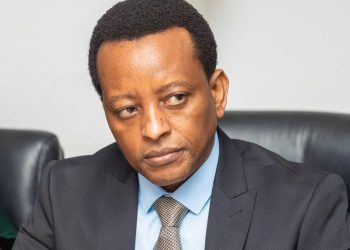
Namibia is aiming to utilise its recent discoveries of oil and gas reserves in the Orange Basin and its abundant renewable energy resources, with several green hydrogen projects underway, to stimulate economic growth.
President Nangolo Mbumba said the developments are expected to stimulate further growth in adjacent industries, including logistics, agriculture and sustainable manufacturing.
“This year, three green hydrogen pilot projects are due to start operations. Green hydrogen is set to play a major role in the transformation of the Namibian economy,” Mbumba said while officially opening the Cabinet for 2024.
Namibia is aiming to become a green hydrogen superpower in the coming decade by positioning itself as a leader in emerging markets and an international exporter of green hydrogen.
Green hydrogen will be an important source of foreign investment and be important for the country’s energy security and transition. The government plans to use it extensively to decarbonise its economy.
“We are also expecting the final announcements on the TotalEnergies’ Venus-1, Shell’s Graff-1 and Jonker-IX oil blocks. We are informed that these three blocks are having a combined estimate of 2.5 billion barrels of oil,” Mbumba said.
“Recently Galp Energia of Portugal, Custos Energy and NAMCOR also announced new oil discoveries in the Mopane 2X well. We want Namibians to actively participate and benefit from the unfolding economic boom.”
Based on these promising industries, Mbumba stressed that the Welwitschia Sovereign Wealth Fund which was established to benefit the citizens, including generations to come, will play a vital role in ensuring inter-generational equity.
The fund was established to ensure that the distribution of benefits flowing from exploiting the country’s natural resource endowments is shared across generations.
Royalties from the sale of natural, renewable and non-renewable mineral resources, taxes, divestiture from public investment holdings and contributions from certain state-owned enterprises will finance the fund.
“Over the past few years, our country has faced unprecedented challenges such as the Covid-19 pandemic and devastating droughts which negatively affected the growth of our economy, thereby constraining our national budget,” he said.
“However, I must also indicate that our collective efforts, as a nation, during the past years aimed at achieving economic recovery, inclusive growth and shared prosperity under the Harambee Prosperity Plan I and II, have borne the desired results.
“Our country is back on the positive trajectory of economic recovery in various sectors, particularly agriculture, mining, fisheries, tourism, oil and gas and green energy. I am therefore urging the responsible Government Ministries in these sectors to start implementing all pending programmes to fast-track economic development and create employment opportunities for our people, particularly the youth,” he implored.
Namibia’s economic growth surpassed the pre-pandemic level, with a registered growth of 7.2% in the third quarter of 2023.
Furthermore, according to the Bank of Namibia’s Economic Outlook, the gross domestic product for 2024 is projected to grow to 3.4%.
Further addressing the Cabinet, Mbumba strongly condemned corruption practices especially in the energy sector, thus urging law enforcement agencies including the media to enhance the fight against corruption.
“Let me assure all Namibians that in line with our government’s clear resolve to promote accountability and transparency, we will continue to strengthen the policy measures aimed to fight against corruption,” said Mbumba.






